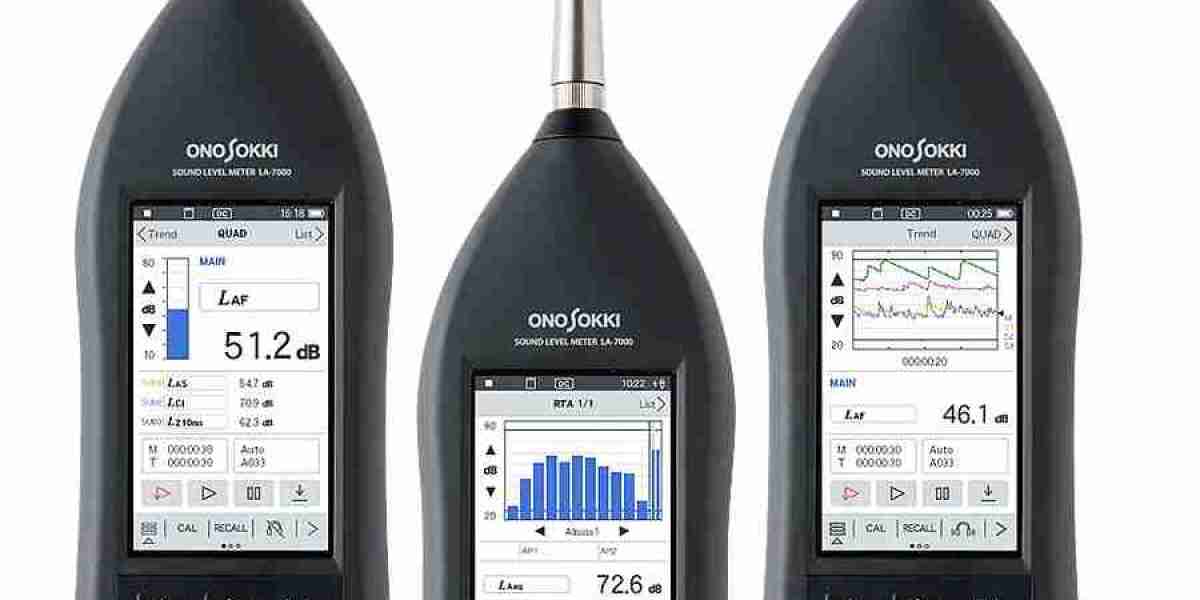Introduction
It is a fact that a majority of the working environments in industries are characterized by having the machines, tools, and operations which produce a very high noise level in terms of decibels. Hearing impairment, low productivity, and legal problems might arise from the continual exposure of industrial noise. Hence, the sound testing meters are the ones that are supposed to be used to keep noise levels under control and to watch over the environment. On the other hand, these instruments are really effective in making the industries realize the environmental regulations as well as the workforce wellbeing.
What is a Sound Testing Meter?
A sound testing meter is a device designed to measure sound levels in decibels (dB). It captures noise intensity, analyzes frequency, and provides accurate data for noise assessment. There are various types of sound testing meters, each suited for different industrial applications.
Why is Industrial Noise Monitoring Important?
- Health and Safety: Continuous exposure to high noise levels can cause hearing damage and stress-related illnesses.
- Regulatory Compliance: Government bodies enforce strict noise control regulations to protect workers and communities.
- Productivity: Excessive noise can reduce concentration and efficiency in the workplace.
Types of Sound Testing Meters Used in Industries
- Class 1 and Class 2 Meters: Class 1 meters provide higher accuracy and are used for professional noise assessments, while Class 2 meters are suitable for general-purpose monitoring.
- Dosimeters: These wearable devices measure an individual worker's noise exposure over time.
- Integrated Sound Level Meters: Used for long-term noise monitoring with real-time data recording.
Key Features of an Effective Sound Testing Meter
- Wide frequency range for diverse noise environments
- High accuracy to comply with regulations
- Data logging for recording and analyzing trends
- Portability for easy use in various industrial settings
How Sound Testing Meters Work in Noise Monitoring?
These meters detect sound pressure levels, analyze frequency components, and store real-time data. Advanced models provide visual noise maps and automated reporting.
Regulations and Standards for Industrial Noise
- OSHA (Occupational Safety and Health Administration) sets workplace noise limits.
- ISO 9612 outlines measurement standards.
- Local authorities impose region-specific noise regulations.
Industries That Require Sound Testing Meters
- Manufacturing: Heavy machinery operations.
- Construction: Equipment noise and on-site activities.
- Transportation: Airports, railways, and logistics hubs.
- Mining: Blasting and drilling noise control.
Challenges in Industrial Noise Monitoring
- Environmental Interference: Wind, echoes, and vibrations affect accuracy.
- Calibration: Regular tuning is necessary to maintain precision.
- Data Interpretation: Understanding and implementing corrective actions based on noise reports.
How to Choose the Right Sound Testing Meter?
When you are looking for a sound measuring device, you must certainly have in mind considerations like measurement accuracy, data storage, ease of use, and regulatory compliance. Leading companies such as Ono Sokki, Brüel & Kjær, and Extech are in high demand.
Benefits of Using Sound Testing Meters in Industries
- Protects workers from hearing loss
- Ensures legal compliance and avoids penalties
- Improves workplace safety and efficiency
Future Trends in Sound Testing Technology
- AI-based noise monitoring for automated assessments
- Wireless meters with IoT integration
- Smartphone-compatible noise tracking apps
Best Practices for Using Sound Testing Meters
- Place meters at noise hotspots for accurate readings
- Calibrate regularly to maintain precision
- Use protective enclosures to avoid environmental disturbances
Conclusion
An essential tool for industrial noise monitoring is a sound testing meter. This instrument has the capability of contributing to the protection of the employees while also enhancing the operational efficiency by using it to comply with regulatory requirements. The safety and productivity of the workplace can be improved by opting for the right noise measurement instrument.
FAQs
- How does a sound testing meter work?
- It detects sound pressure levels and converts them into measurable data.
- Are sound testing meters required by law?
- Yes, many industries must comply with noise regulations enforced by OSHA and other authorities.
- What is the best sound testing meter for industrial use?
- Class 1 meters are ideal for professional assessments due to their high accuracy.
- Can sound testing meters detect ultrasonic noise?
- Some advanced meters can measure ultrasonic frequencies beyond human hearing.
- How often should a sound testing meter be calibrated?
- At least annually or as recommended by the manufacturer.


